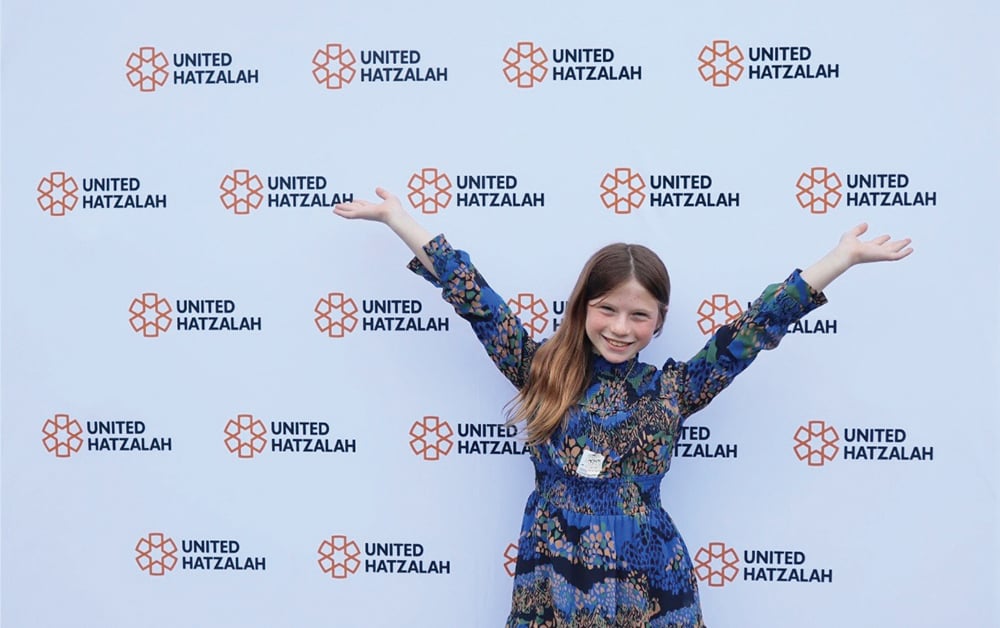An individual’s parting words say a great deal about his passions as well as his character. This stands true if the words issued are the habitual words he utters before parting any gathering, or if they are indeed his words as he departs from this life. The term “last but not least” is often used to remind us that it is often the treasures we wait for that are the most significant gifts we will ever receive. In the last parsha of the Torah we are gifted with Moshe’s parting words—which can be transformative in our lives if we pay attention! Indeed, as Moshe Rabbeinu was poised on the mountain of Nevo prior to his petirah (departure from the world), he could have uttered words of bitterness or heartbreak. Did he not suffer a very tragic ending due to the complaining nation under his charge? Yet, instead of projecting his disappointment via angry words to the nation, he held himself back and chose the soothing message that is an eternal paradigm for selflessness: “Fortunate are you, O Israel. Who is like you? You will be delivered by Hashem, the shield of your salvation.” It is difficult for us “beinonim,” mere average mortals, to absorb the level of purity attained by a man such as Moshe. How in the world was he able to rein in his bitter disappointment and frustration as he delivered a message of hope and consolation? In doing so, he was able to eradicate all feelings of negativity from his heart and truly understand, acknowledge and praise the nation for the spiritual growth they made during their time in the Midbar.
The stories told of the gedolim of past and present generations speaks to the primacy of hakarat hatov (gratitude), chesed (loving-kindness), ahavat Yisrael (love of mankind) and simchat hachaim, joy of life reflected in the holy, selfless lives they lived, as well as the happiness they experienced in serving Hashem. Most importantly, it is in our weekly parshiyot, whereby we have an audience with God all day long. It is here that He teaches us all we need to know via the important values that are meant to inform our lives. We also owe a great deal of gratitude to our rabbinic teams and Torah greats, who help us understand the importance of these Torah treasures. In fact, it was Rabbi Jonathan Sacks, z”l, whom I knew I could count on for the sage Torah insights on how we are meant to deal with the issues that come up in our interpersonal relationships. He taught us that when feeling dismissed or wronged by others, this can be seen as an opportunity for cheshbon hanefesh, soul searching. In fact, he never shied away from relating personal stories to help us on this path. Yet, it was one story in particular that informed my own life in a big way. It seems that at the start of his career he was anxious due to the shortage of “feedback” he received from the senior rabbinical figure, whom he leaned on for advice. This was because he was short in offering encouragement or praise. This, in turn, impacted on the young rabbi’s confidence in trying innovative approaches and seeking new ways of getting people engaged in Jewish life. Instead, he anticipated the inevitable criticism that would surely come. As a result, he suffered emotionally, and it was extremely draining. The encouragement never came and the silence hurt. He described it as such: “It ate, like acid, into my heart!” Yet he never gave up his dream of being the great rabbi and teacher he became.
One fortuitous day, Rabbi Sacks experienced a lightning-flash of insight! It suddenly came to him that he had two options. On the one hand, he could continue to dwell on that which he thought was coming to him. Alternatively, he could look at it from another perspective by turning the entire scenario around. This is what he decided to do. Instead of waiting for Rabbi X to encourage him, he would take the high road, by responding to the rabbi in the manner that he expected the rabbi to treat him. This turn-about by the young Rabbi Sacks was nothing less than a life-changing moment. It not only gave him the fortitude and strength he was looking for, it also allowed him to formulate it as a life-changing ethic that would guide his future actions. Indeed, he would never again wait to be treated in the manner in which he expected. From that day on he lived by the credo of: Don’t wait to be praised; praise others. Don’t wait to be respected; respect others. Don’t stand on the sidelines criticizing others. Do something yourself to make things better. Don’t wait for the world to change; begin the process yourself, and then win others to the cause. Be the change you seek in the world. Take the initiative.
When I reviewed a past shiur on this topic, I was once again reminded of this important Torah lesson that is especially salient in these difficult times. I am sure the yeshua from this pandemic is soon to come. Yet, while we are waiting, it is important for each of us to make the changes Hashem is waiting for rather than looking at and waiting for others to take the initiative. We are so close, and so many have done their part. Yet, instead of waiting for others to step up to the plate, or wasting time criticizing them, let us make the positive finishing touches we are waiting for others to accomplish. We have to admit that Hashem is still shedding tears as He witnesses the strife among us! He sends us so many messages and we remain stubborn, holding on to our petty disagreements, disillusionments and complaints. He wonders why we can’t look at the big picture, the wonderful future He has in store for us via our eventual geulah. Yet, we stubbornly hold on and delay the process. Let us take this lesson and bring it into our post Yomim Tovim lives as we begin to work on the growth challenges we committed to during the Yomim Noraim and keep the Yom Kippur spirit alive.
In case we forget and veer off our trajectory of freedom, all we have to do is lean on the wisdom of our concluding parsha. The Torah makes it so easy for us to walk in the ways of our forefathers. Let us tune in to the beautiful parting message of Moshe Rabbeinu as the perfect way to usher in our new year. Let us emulate his empathy, compassion and understanding of human nature. In doing so we will have no trouble in holding back our anger and empathizing with the others in our lives. As a result we will choose to respond with soothing messages of consolation to calm the hearts of others. In doing so we will be Hashem’s ambassadors in eradicating all feelings of negativity in the lives of those we love and care about. The results will be transformative as we become the agents of change for a better world.
By Renee Nussbaum, PhD, PsyA












